I don’t even know if that title makes any sense. Anyway. A bunch of the prompts from the past week have dealt, in some way, with content creation. A lot of people have disagreed with my interpretation of that task as a method of drawing people to a website for the purpose of monetizing them in some way and getting your message and your content seen by those who’d enjoy seeing it.
If blogging mainly for yourself is content creation, then today’s prompt, which comes from Sandrian of Aeternus Gaming, doesn’t make a lot of sense:
What are some of the things that you wish you knew before you started creating content?
There isn’t anything to know, really. Buy a webcam and a mic and film yourself for YouTube or Tiktok, or go to WordPress.com or Blogspot.com and just type whatever you like. There is nobody in the world who will tell you that you’re doing it the wrong way. If you’re having fun, that’s enough. And when it stops being fun, it’s fine.
That’s what I’m doing these days; I just write whatever and it’s not super important to me that this website gets traffic, as it will never generate a cent. I may stop blogging at anytime, maybe for another six or seven years. (Obviously, I do love it when people stop by and comment).
But, let’s turn that around, and assume that I wanted people to read what I wrote, and wanted to make a little money off of Chasing Dings!, or at least get enough visibility so that I could get a paying writing gig somewhere.
How would I go about that?
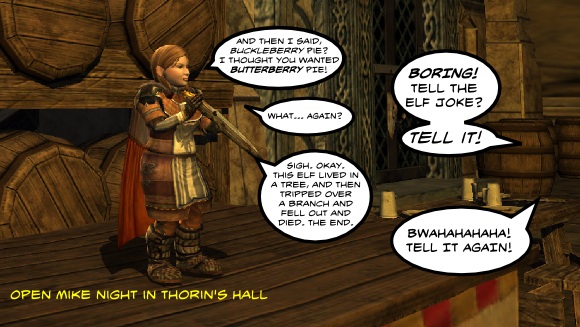
Meet reader expectations
I would resolve to post on a regular schedule. The Blaugust Promptapalooza is a special event where I’m posting every day, but normally I’d expect to post maybe three times a week. I’d want those to be specific days.
I’d also want to post about specific things. Currently I just post about whatever I feel like. One day it could be MMOs. One day it could be emulated PS2 games. Then I might write about painting miniatures or 3D printing. Other days I might post about the weather. It’s my blog. I can do what I want.
But if I really wanted to bring people in, I’d find one thing I was passionate about, and just write about that. If I wanted to write about something else, I would start another blog — with its own schedule, maybe weekly — and talk about that there.
If every one of my posts on this blog dealt with playing Doman Mahjong in FFXIV (and why not? it’s fun!), then eventually when people started searching for information about FFXIV’s Mahjong on any given search engine, they’d start seeing all the links point to my Mahjong blog. I could show how to set up tricky yaku, or explore the weaknesses in the novice bot AI — the possibilities are endless. I would become the authority, rightly or wrongly, on this subject. I could then branch out to related topics (other Gold Saucer games, or other forms of Mahjong) and bring my readership along while expanding the kinds of potential readers search engines would send me.
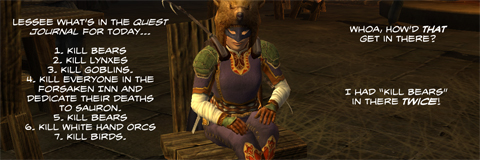
Find your voice
My readers don’t start off knowing anything about me. There’s no reason they should. If I were really trying to attract people to this blog, I’d probably write in a different style.
I see this all the time in Youtube streamers. The bets ones have narrowed their focus to meet viewer expectations, but they also have a voice — sometimes they literally talk funny to make themselves unique, but it can be more than that. Are they funny? Flirty? Pedantic? Competent? Ars Technica had an interview with a YouTuber, Mark “Markiplier” Fischbach, who had a very specific focus (let’s play jump scare reaction videos) and voice (loud and energetic to attract kids) and who eventually made the decision to change that focus and voice to attract an older crowd. I’d never heard of Markiplier before I read the article, but I have seen some of his videos since, and he’s definitely targeting an older crowd.
Text is no different from video, except less makeup. Who is the person I want to be to a reader? TBH, I don’t even know. When I was writing West Karana, I chose the persona of someone who found fun and humor in the MMO community. It’s definitely a part of me. I haven’t found a voice yet for this blog, but I feel like I’m being shouty, and that definitely isn’t what I’m going for (and isn’t me in real life). I can’t go back to the WK voice because it’s just such a different world now. It’s probably for the best that I lost that site.
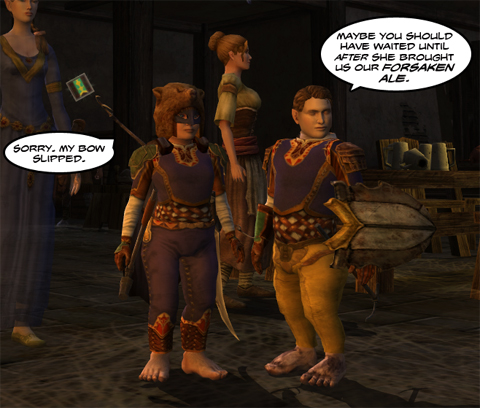
Know your reader
This can be tricky, as most readers will never comment. You know that they’re there, but you don’t know why. Finding out why is key to bringing more people in.
There’s a couple of obvious tricks. One is to make it super simple for your readers to tell you who they are. Polls are decent at that. If all a reader has to do is click a button, they’ll probably play along. If they have to go through a long process of signing up to a blogging service, choosing account names and passwords, verifying their e-mail and that they are not a robot, then probably at least some people will give up along the way.
These are extreme cases.
You could occasionally ask questions in your post. A post titled “What Is Your Favorite Overwatch E-Sports Team — Mayhem or Fusion?” would get people’s attention. I got this particular example from a T-Mobile ad on Twitter. You could talk about why you think these two are the only ones worth cheering for, and people might want to comment and insist that, no, Shock is the best team (these are all apparently real team names). (Also, all the team members look to be about twelve and there are no women).
Readers need a reason to comment. If my blog post was, “I went to the grocery store today and bought milk!”, there’s really no opening there for someone to content. If my post was rather titled, “Covid Party in the Dairy Section: Is Your Grocery Store Virus Central?” then the reader would want to read it (assuming my blog suddenly started talking about the supermarket industry) and maybe they would share about the huge disregard for social distancing in their local store.
Making headlines like that one above may seem dishonest, but it shouldn’t. That article really would be talking about how the virus spreads in stores, how you should protect yourself and so on. Headlines should never lie. That will drive off your readers. The entire purpose of a headline is to entice the potential reader to click it and read your article. Afterwards, they’ll be happy they got a chance to read it. They’ll be likely to come back next time.
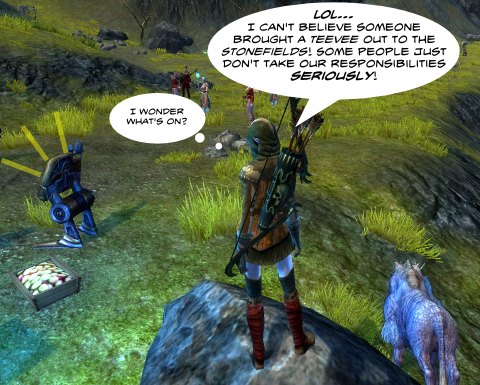
Use Analytics
Google Analytics is free. All you need is a Google account, and if your blog is non-commercial, you can get an incredible amount of information about your readers for nothing — all you have to do is look.
I know, for example, that most of my readers come here from Twitter, and that most people read my blog around 8PM, my local time. This means two things to me: I’d better keep my Twitter presence high, obviously, but I should also start exploring other means of publicizing my articles.
I’ve already written about one — narrowing the focus so that search engines start rating me more highly for the narrowed target of my blog.
Back in the West Karana days, I got a lot of traffic from search engines. An exciting amount of people would actually type “West Karana blog” into their search engine — they were looking for my content on purpose! The rest of the queries that listed my site were based on things I was writing about, and their decision to follow the link could only have been based on the headlines I chose. I got a lot of comments, and even when I came back after six years of not blogging, people still remembered my blog, so that’s something.
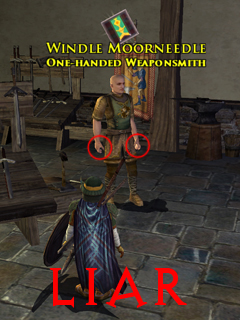
Do you.
Ultimately, though, you should be your own best reader or viewer. Make the sort of content you’d like to see, make it something you’re proud of, and you’ll find people who share your vision.





I stopped looking at Google Anaytics regularly a few years ago. They send me a monthly email reminding me they exist and for a while I opened the console and had a flick through but this year I haven’t even clicked on the emails. I don’t know how many people look at my blog other than what it says in the main stats page on Blogger, which I believe to be frequently inaccurate by at least one order of magnitude.
The only measure I pay attention to is how many comments I get. Like you, I love getting comments and I can predict with fair accuracy which posts will draw the most. Unfortunately I can also predict that it will rarely be the posts on which I spend the most time and effort so I don’t rely on comments to motivate me, either.
Titles are super-interesting. If I look back over the years I used to use quite a lot of self-explanatory, clear titles. I also used always to put the name of the main game I was writing about in the title. I used to make some effort to make sure search engines would pick up my posts on queries realting to the content.
Over time, I gave up doing all of that. I always used songs and lyrics and other quotes for titles but now that’s almost all I use. My main drive these days is to use quotes from songs that will be of interest when I compile my monthly “title music” post. Those posts are some of the least commented on and probably least viewed of anything I do. I have no way of knowing but I’d guess that hardly anyone clicks on any of the videos or links or listens to any of the songs.
Even I would have to admit that its gotten a little out of hand. I’m thinking of running an experiment where I use straight, explanatory titles for a month, keeping the song lyrics for a sub-title. That way I can still do my music posts but I might be able to see if it has any effect on how many people find the posts. Maybe a month wouldn’t be long enough and I guess I’d have to check the numbers on Analytics to see if there was a change.
Still thinking about it…
The whole content creation question comes down to, for whom are we creating content? For ourselves? For a specific audience? For our friends? Guildmates? No matter what people say publicly, I bet everyone would like their blog to become a center of great discussion among friends new and old. Maybe for some people that happens with no effort on their part — they are just naturally easy to find on search engines and are well-known enough that people seek them out. The rest of us need to put some time in to make it happen.
I admit I didn’t know you were using song lyrics for all your titles until you mentioned it awhile back…
I blog super sporadically and most of my posts get one view and it’s the view I create by opening the post to share it to Twitter. When I blogged semi-regularly I had a LOT more traffic. Just to reinforce your point about a regular schedule.
I’m surprised you get so much traffic in the evenings. I would’ve thought you’d get a lot in the morning since that seems to be when Twitter is most active (I assume from people easing into their work day).
I don’t have GA on my site because I don’t want to get depressed. LOL. On the other hand, I don’t want to put in the effort to build an audience!
I believe it is because I am sometimes active around then, and Twitter starts directing people to other things I have posted. I’m also getting more people from feeds.
I installed GA to see what sorts of posts worked with people. The discussion about crafting that spilled into Twitter did well. It got some people to put my blog in their feed reader. That reminded me to set up Feedly — I won’t miss any of your posts now 🙂